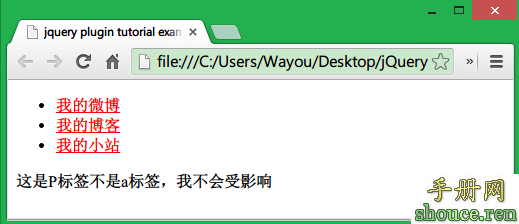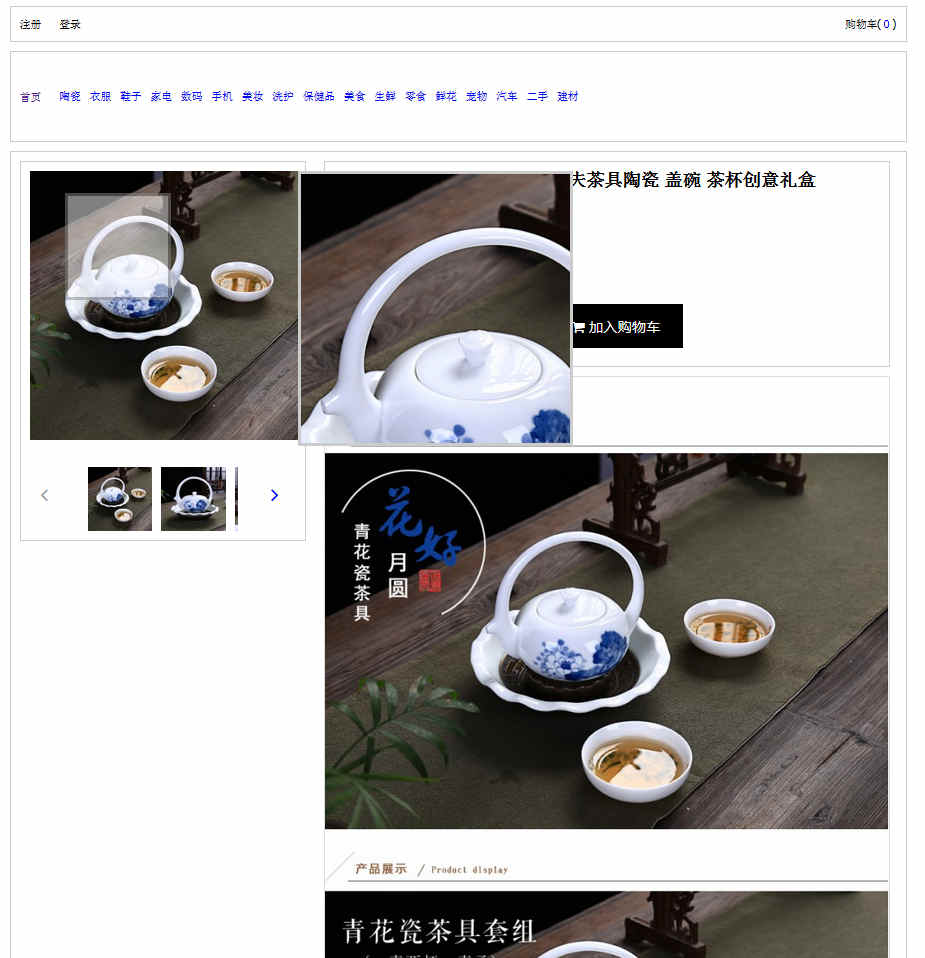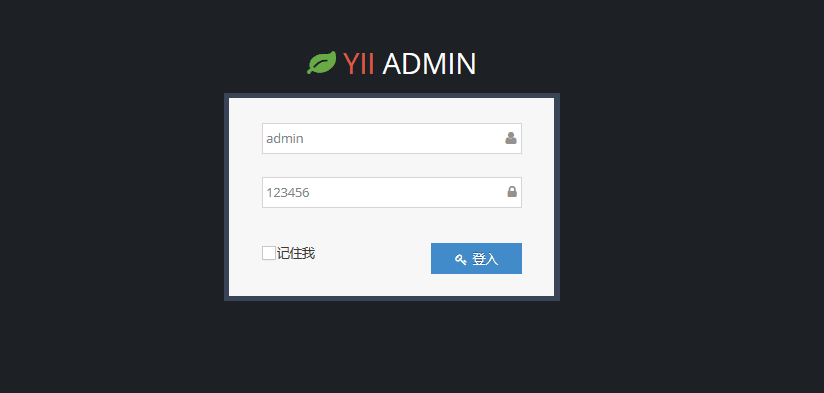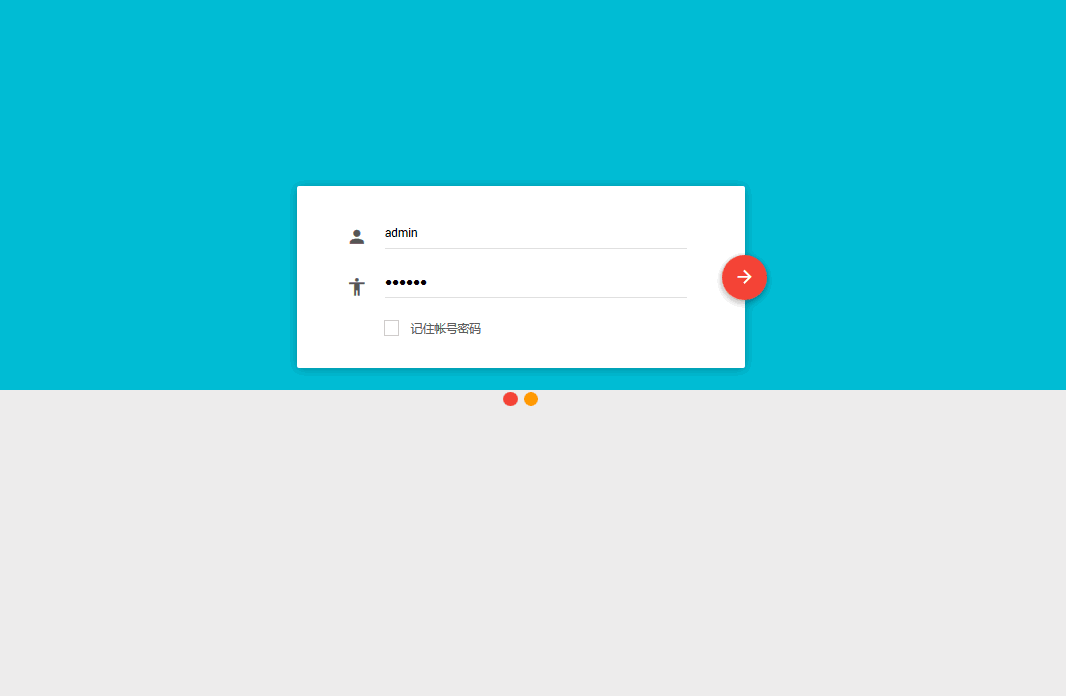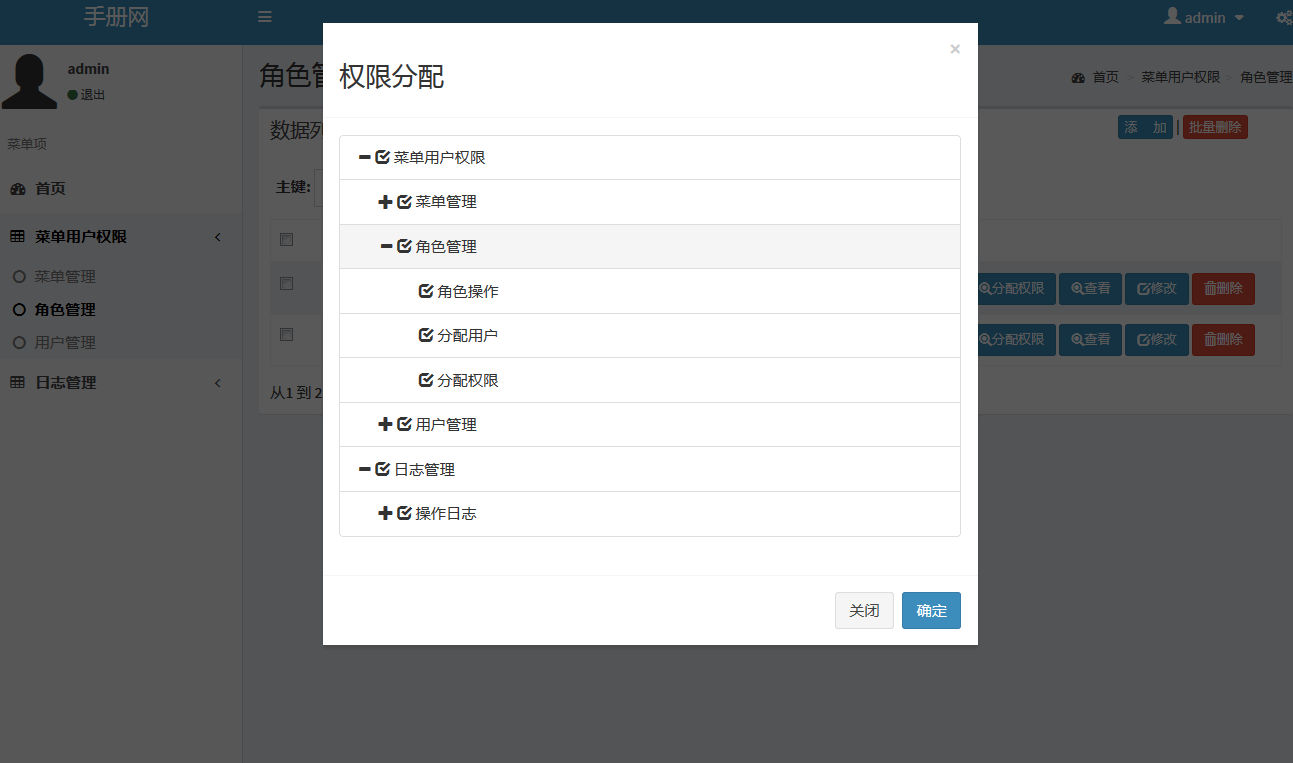基于TP3.2版人脸识别函数
jerry thinkphp 2015年11月19日
收藏
获取人的脸部特征信息,得到一组特征数组
第一步,在百度开发者中心申请人脸识别接口,具体步骤查询百度
第二步,申请成功后记下API Key和Secret Key
第三步,在框架/Library/Org/Util/目录下建立Baidu.class.php代码如下
$url='http://xxx.xxx.com/xxx/xxx.jpg';
dump(face($url));
成功返回:
array(6) {
["face"] => array(1) {
[0] => array(3) {
["face_id"] => string(32) "xxxxxxxxxxxxxxxxxxxxxxxxxxxxx"
["attribute"] => array(3) {
["gender"] => array(2) {
["confidence"] => string(8) "1.000000"
["value"] => string(6) "female"
}
["smiling"] => array(1) {
["confidence"] => string(8) "0.131746"
}
["face"] => array(2) {
["value"] => string(4) "true"
["confidence"] => string(4) "0.19"
}
}
["position"] => array(6) {
["center"] => array(2) {
["x"] => string(8) "0.653580"
["y"] => string(8) "0.285610"
}
["width"] => string(8) "0.624930"
["height"] => string(8) "0.468110"
["eye_left"] => array(2) {
["x"] => string(8) "0.541770"
["y"] => string(8) "0.115710"
}
["eye_right"] => array(2) {
["x"] => string(8) "0.875140"
["y"] => string(8) "0.186870"
}
["mouth"] => array(2) {
["x"] => string(8) "0.640980"
["y"] => string(8) "0.440060"
}
}
}
}
["img_id"] => string(32) "xxxxxxxxxxxxxxxxxxxxxxxxxxxxxxxxxx"
["url"] => string(35) "http://xxx.xxx.com/xxx/xxx.jpg"
["session_id"] => string(32) "xxxxxxxxxxxxxxxxxxxxxxxxxxxxx"
["img_width"] => string(3) "200"
["img_height"] => string(3) "267"
第一步,在百度开发者中心申请人脸识别接口,具体步骤查询百度
第二步,申请成功后记下API Key和Secret Key
第三步,在框架/Library/Org/Util/目录下建立Baidu.class.php代码如下
第四步,在Common目录添加方法代码如下
<?php/***********************************************************Author: dtnet(presdecoeur@gmail.com)*Time: 2014-6-5下午5:35:13*File: Bdauth.class.php**********************************************************/namespace Org\Util;class Baidu {public static $BD_OAUTH2_ENDPOINTS = array ('authorize' => 'https://openapi.baidu.com/oauth/2.0/authorize','token' => 'https://openapi.baidu.com/oauth/2.0/token','logout' => 'https://openapi.baidu.com/connect/2.0/logout','face'=>'https://openapi.baidu.com/rest/2.0/media/v1/face/detect');protected $clientId;protected $clientSecret;protected $redirectUri;public function __construct($clientId, $clientSecret) {$this->clientId = $clientId;$this->clientSecret = $clientSecret;}public function setRedirectUri($redirectUri) {if (empty ( $redirectUri )) {$redirectUri = $this->getCurrentUrl ();}$this->redirectUri = $redirectUri;return $this;}public function getRedirectUri() {return $this->redirectUri;}public function getLogoutUrl($accessToken, $next = '') {$params = array ('access_token' => $accessToken,'next' => $next ? $next : $this->getCurrentUrl ());return self::$BD_OAUTH2_ENDPOINTS ['logout'] . '?' . http_build_query ( $params, '', '&' );}public function getAuthorizeUrl($responseType = 'code', $scope = '', $state = '', $display = 'popup') {$params = array ('client_id' => $this->clientId,'response_type' => $responseType,'redirect_uri' => $this->redirectUri,'scope' => $scope,'state' => $state,'display' => $display);return self::$BD_OAUTH2_ENDPOINTS ['authorize'] . '?' . http_build_query ( $params, '', '&' );}public function getAccessTokenByAuthorizationCode($code){$params = array('grant_type' => 'authorization_code','code' => $code,'client_id' => $this->clientId,'client_secret' => $this->clientSecret,'redirect_uri' => $this->redirectUri,);return $this->makeAccessTokenRequest($params);}public function getAccessTokenByClientCredentials($scope = ''){$params = array('grant_type' => 'client_credentials','client_id' => $this->clientId,'client_secret' => $this->clientSecret,'scope' => $scope,);return $this->makeAccessTokenRequest($params);}public function getAccessTokenByDeveloperCredentials($accessKey, $secretKey){$params = array('grant_type' => 'developer_credentials','client_id' => $accessKey,'client_secret' => $secretKey,);return $this->makeAccessTokenRequest($params);}public function getAccessTokenByRefreshToken($refreshToken, $scope = ''){$params = array('grant_type' => 'refresh_token','refresh_token' => $refreshToken,'client_id' => $this->clientId,'client_secret' => $this->clientSecret,'scope' => $scope,);return $this->makeAccessTokenRequest($params);}public function makeAccessTokenRequest($params){$result = $this->request(self::$BD_OAUTH2_ENDPOINTS['token'], $params, 'POST');if ($result) {$result = json_decode($result, true);if (isset($result['error_description'])) {$this->setError($result['error'], $result['error_description']);return false;}return $result;}return false;}public function getAccessFace($imgurl) {$retoken=$this->getAccessTokenByClientCredentials();$imgurl=urlencode($imgurl);$params = array('access_token' => $retoken['access_token'],'url' => $imgurl,);return $this->makeAccessFaceRequest($params);}public function makeAccessFaceRequest($params){$result = $this->request(self::$BD_OAUTH2_ENDPOINTS['face'], $params, 'POST');if ($result) {$result = json_decode($result, true);if (isset($result['error_description'])) {$this->setError($result['error'], $result['error_description']);return false;}return $result;}return false;}public static function setError($errno, $errmsg){self::$errno = $errno;self::$errmsg = $errmsg;self::errorLog($errmsg);}/*** Get the gloable errno.** @return int*/public static function errno(){return self::$errno;}/*** Get the gloable error message.** @return string*/public static function errmsg(){return self::$errmsg;}/*** Whether to set the debug mode of the Baidu OpenAPI SDK or not.** @param bool $on true or false* @return void*/public static function setDebugMode($on = true){self::$isDebug = $on;}/*** Whether the debug mode of the Baidu OpenAPI SDK is on or off.** @return bool*/public static function isDebugMode(){return self::$isDebug;}/*** Request for a http/https resource** @param string $url Url to request* @param array $params Parameters for the request* @param string $httpMethod Http method, 'GET' or 'POST'* @param bool $multi Whether it's a multipart POST request* @return string|false Returns string if success, or false if failed*/public static function request($url, $params = array(), $httpMethod = 'GET', $multi = false){// when using bae(baidu app engine) to deploy the application,// just comment the following line$ch = curl_init();// when using bae(baidu app engine) to deploy the application,// and uncomment the following two lines//$fetch= new BaeFetchUrl();//$ch = $fetch->getHandle();$curl_opts = array(CURLOPT_CONNECTTIMEOUT => 3,CURLOPT_TIMEOUT => 5,CURLOPT_USERAGENT => 'baidu-apiclient-php-2.0',CURLOPT_HTTP_VERSION => CURL_HTTP_VERSION_1_1,CURLOPT_RETURNTRANSFER => true,CURLOPT_HEADER => false,CURLOPT_FOLLOWLOCATION => false,);if (stripos($url, 'https://') === 0) {$curl_opts[CURLOPT_SSL_VERIFYPEER] = false;}if (strtoupper($httpMethod) === 'GET') {$query = http_build_query($params, '', '&');$delimiter = strpos($url, '?') === false ? '?' : '&';$curl_opts[CURLOPT_URL] = $url . $delimiter . $query;$curl_opts[CURLOPT_POST] = false;} else {$headers = array();if ($multi && is_array($params) && !empty($params)) {$body = self::buildHttpMultipartBody($params);$headers[] = 'Content-Type: multipart/form-data; boundary=' . self::$boundary;} else {$body = http_build_query($params, '', '&');}$curl_opts[CURLOPT_URL] = $url;$curl_opts[CURLOPT_POSTFIELDS] = $body;$curl_opts[CURLOPT_HTTPHEADER] = $headers;}curl_setopt_array($ch, $curl_opts);$result = curl_exec($ch);if ($result === false) {self::setError(curl_errno($ch), curl_error($ch));curl_close($ch);return false;} elseif (empty($result)) {$http_code = curl_getinfo($ch, CURLINFO_HTTP_CODE);if ($http_code != 200) {self::setError($http_code, 'http response status code: ' . $http_code);curl_close($ch);return false;}}curl_close($ch);return $result;}/*** Prints to the error log if you aren't in command line mode.** @param String log message*/public static function errorLog($msg){// disable error log if we are running in a CLI environmentif (php_sapi_name() != 'cli') {error_log($msg);}// Set the debug mode if you want to see the errors on the pageif (self::$isDebug) {echo 'error_log: '.$msg."\n";}}/*** Generate the signature for passed parameters.** @param array $params Array of parameters to be signatured* @param string $secret Secret key for signature* @param string $namespace The parameter which will be excluded when calculate the signature* @return string Signature of the parameters*/public static function generateSign($params, $secret, $namespace = 'sign'){$str = '';ksort($params);foreach ($params as $k => $v) {if ($k != $namespace) {$str .= "$k=$v";}}$str .= $secret;return md5($str);}/*** Get the url of current page.** @return string*/public static function getCurrentUrl(){$protocol = 'http://';if (isset($_SERVER['HTTP_X_FORWARDED_PROTO'])) {$protocol = strtolower($_SERVER['HTTP_X_FORWARDED_PROTO']) . '://';} elseif (isset($_SERVER['HTTPS']) && $_SERVER['HTTPS'] == 'on') {$protocol = 'https://';}if (isset($_SERVER['HTTP_X_FORWARDED_HOST'])) {$host = $_SERVER['HTTP_X_FORWARDED_HOST'];} else {$host = $_SERVER['HTTP_HOST'];}$currentUrl = $protocol . $host . $_SERVER['REQUEST_URI'];$parts = parse_url($currentUrl);$query = '';if (!empty($parts['query'])) {// drop known oauth params$params = explode('&', $parts['query']);$retained_params = array();foreach ($params as $param) {if (self::shouldRetainParam($param)) {$retained_params[] = $param;}}if (!empty($retained_params)) {$query = '?' . implode($retained_params, '&');}}// use port if non default$port = isset($parts['port']) && (($protocol === 'http://' && $parts['port'] !== 80) ||($protocol === 'https://' && $parts['port'] !== 443)) ? ':' . $parts['port'] : '';// rebuildreturn $protocol . $parts['host'] . $port . $parts['path'] . $query;}private static function shouldRetainParam($param){foreach (self::$DROP_QUERY_PARAMS as $drop_query_param) {if (strpos($param, $drop_query_param . '=') === 0) {return false;}}return true;}/*** Build the multipart body for file uploaded request.* @param array $params Parameters for the request* @return string*/private static function buildHttpMultipartBody($params){$body = '';$pairs = array();self::$boundary = $boundary = md5('BAIDU-PHP-SDK-V2' . microtime(true));foreach ($params as $key => $value) {if ($value{0} == '@') {$url = ltrim($value, '@');$content = file_get_contents($url);$array = explode('?', basename($url));$filename = $array[0];$body .= '--' . $boundary . "\r\n";$body .= 'Content-Disposition: form-data; name="' . $key . '"; filename="' . $filename . '"'. "\r\n";$body .= 'Content-Type: ' . self::detectMimeType($url) . "\r\n\r\n";$body .= $content . "\r\n";} else {$body .= '--' . $boundary . "\r\n";$body .= 'Content-Disposition: form-data; name="' . $key . "\"\r\n\r\n";$body .= $value . "\r\n";}}$body .= '--' . $boundary . '--';return $body;}/*** Tries to detect MIME type of a file** The method will try to use fileinfo extension if it is available,* deprecated mime_content_type() function in the other case. If neither* works, default 'application/octet-stream' MIME type is returned** @param string filename* @return string file MIME type*/private static function detectMimeType($filename){// finfo extension from PECL availableif (function_exists('finfo_open')) {if (!isset(self::$fileinfoDb)) {self::$fileinfoDb = finfo_open(FILEINFO_MIME);}if (self::$fileinfoDb) {$info = finfo_file(self::$fileinfoDb, $filename);}}// (deprecated) mime_content_type function availableif (empty($info) && function_exists('mime_content_type')) {$info = mime_content_type($filename);}return empty($info)? 'application/octet-stream': $info;}}
第五步,使用函数
function face($url){$clientId = '这里用API Key替换';$clientSecret = '这里用Secret Key替换';$image = new \Org\Util\Baidu($clientId,$clientSecret);return $image->getAccessFace($url);}
$url='http://xxx.xxx.com/xxx/xxx.jpg';
dump(face($url));
成功返回:
array(6) {
["face"] => array(1) {
[0] => array(3) {
["face_id"] => string(32) "xxxxxxxxxxxxxxxxxxxxxxxxxxxxx"
["attribute"] => array(3) {
["gender"] => array(2) {
["confidence"] => string(8) "1.000000"
["value"] => string(6) "female"
}
["smiling"] => array(1) {
["confidence"] => string(8) "0.131746"
}
["face"] => array(2) {
["value"] => string(4) "true"
["confidence"] => string(4) "0.19"
}
}
["position"] => array(6) {
["center"] => array(2) {
["x"] => string(8) "0.653580"
["y"] => string(8) "0.285610"
}
["width"] => string(8) "0.624930"
["height"] => string(8) "0.468110"
["eye_left"] => array(2) {
["x"] => string(8) "0.541770"
["y"] => string(8) "0.115710"
}
["eye_right"] => array(2) {
["x"] => string(8) "0.875140"
["y"] => string(8) "0.186870"
}
["mouth"] => array(2) {
["x"] => string(8) "0.640980"
["y"] => string(8) "0.440060"
}
}
}
}
["img_id"] => string(32) "xxxxxxxxxxxxxxxxxxxxxxxxxxxxxxxxxx"
["url"] => string(35) "http://xxx.xxx.com/xxx/xxx.jpg"
["session_id"] => string(32) "xxxxxxxxxxxxxxxxxxxxxxxxxxxxx"
["img_width"] => string(3) "200"
["img_height"] => string(3) "267"
- 没有章节



